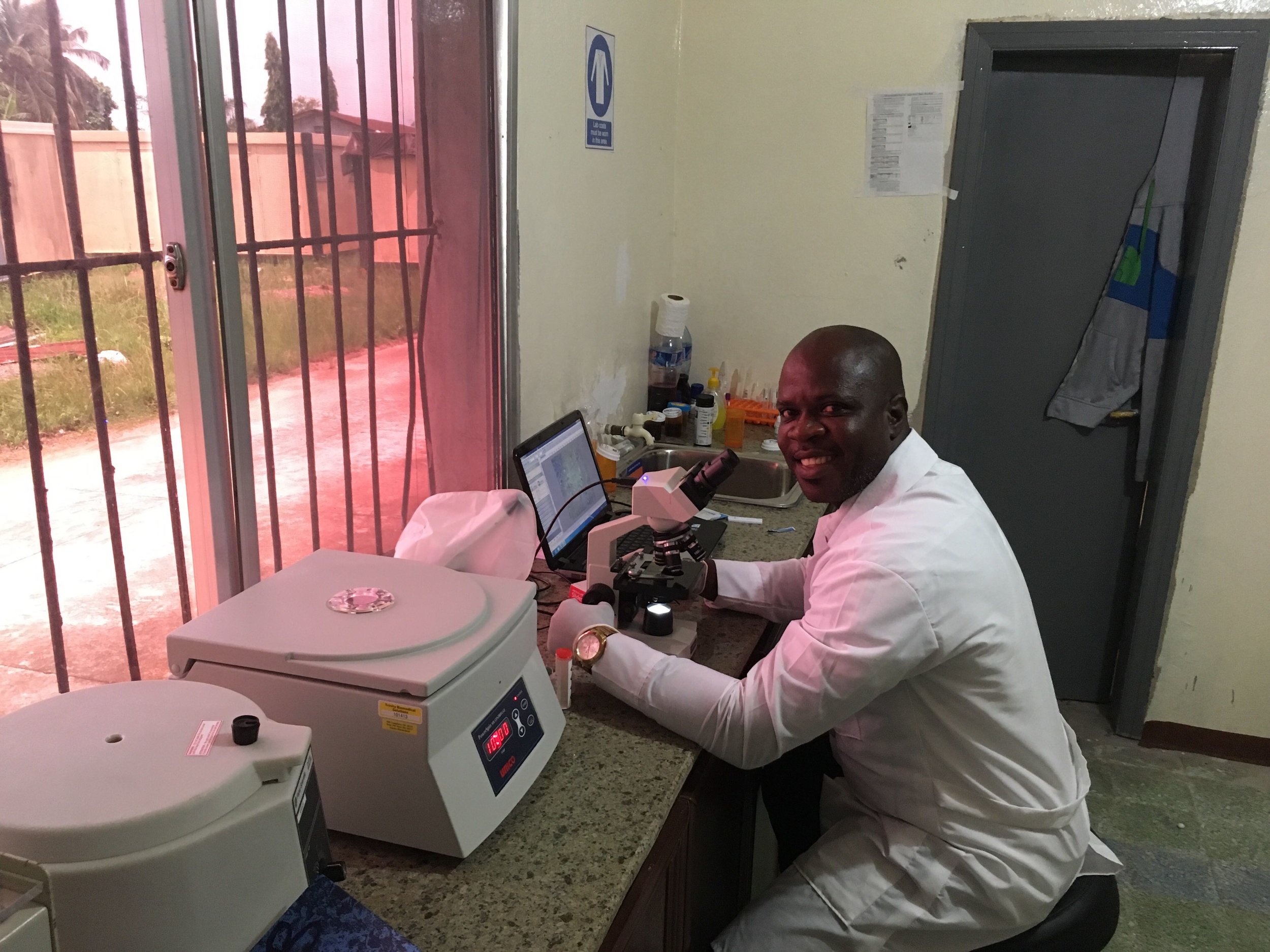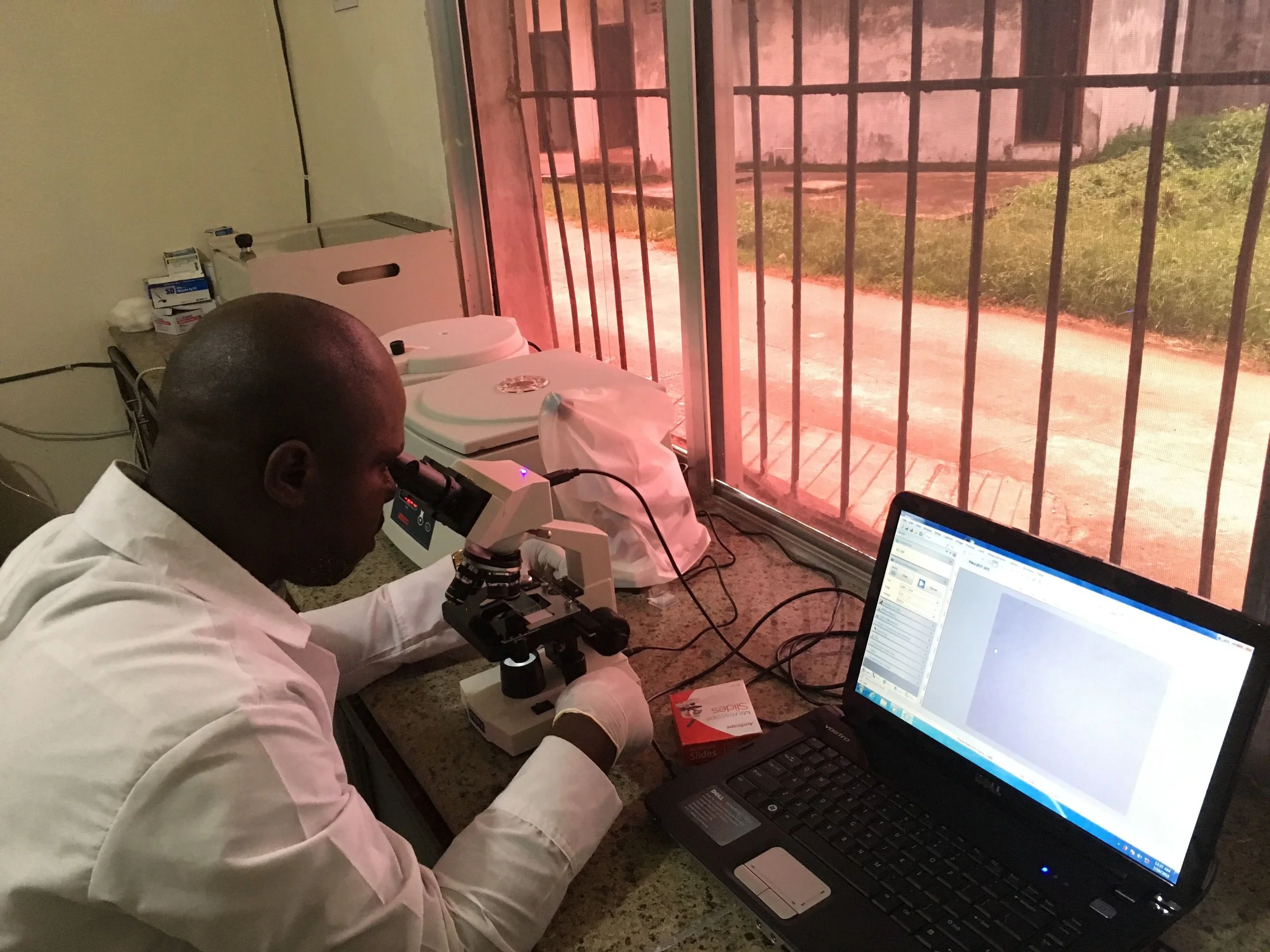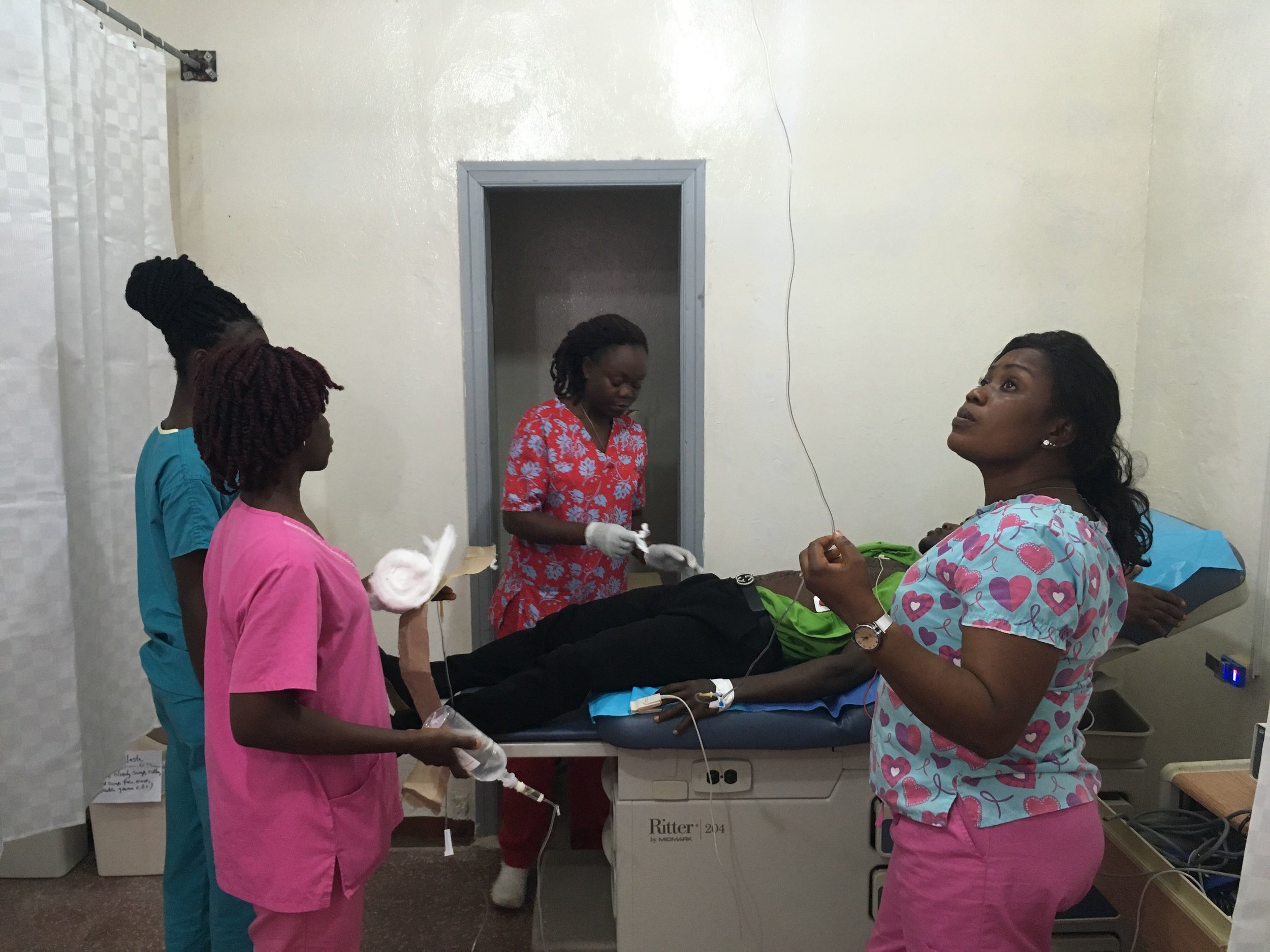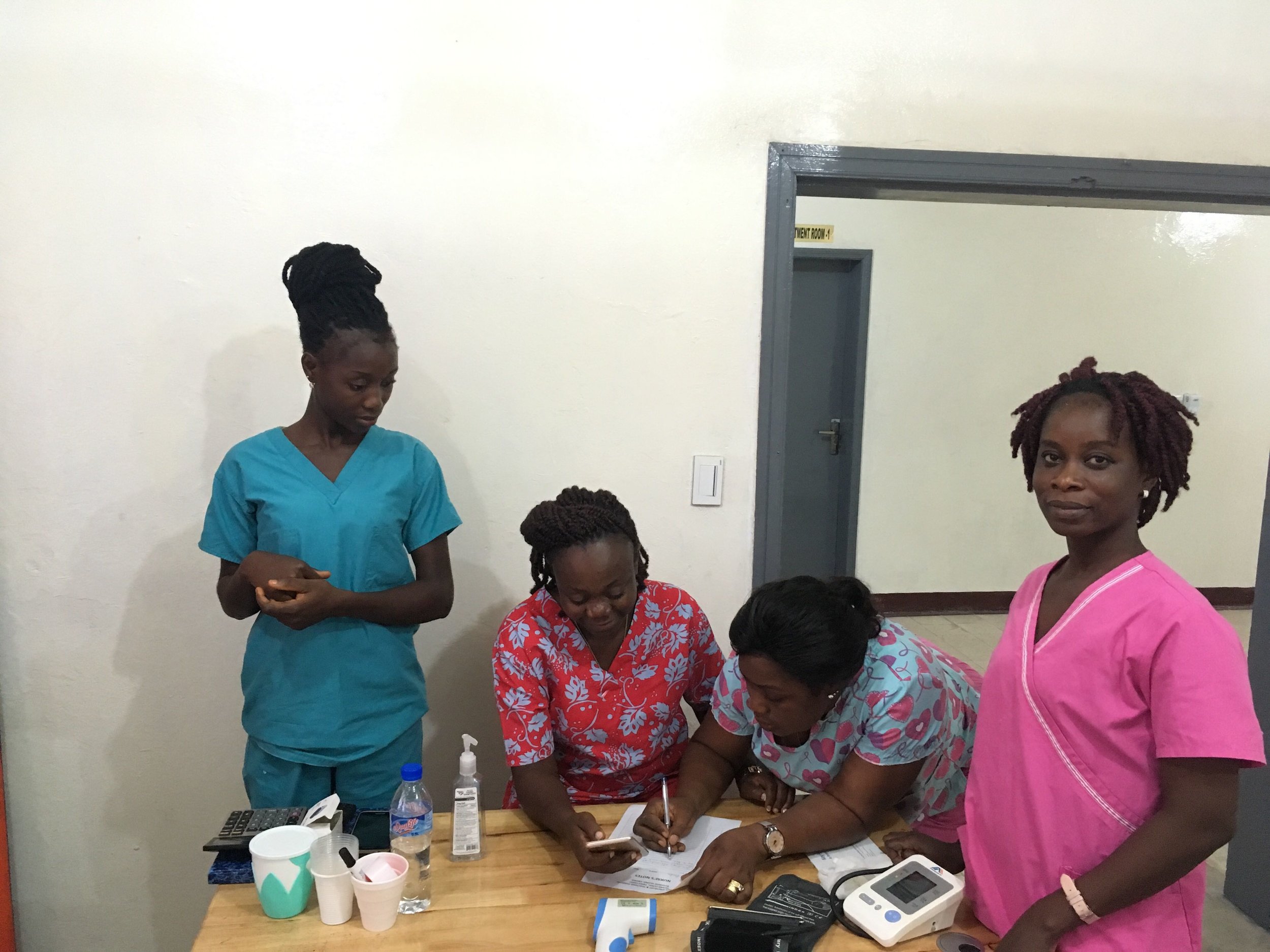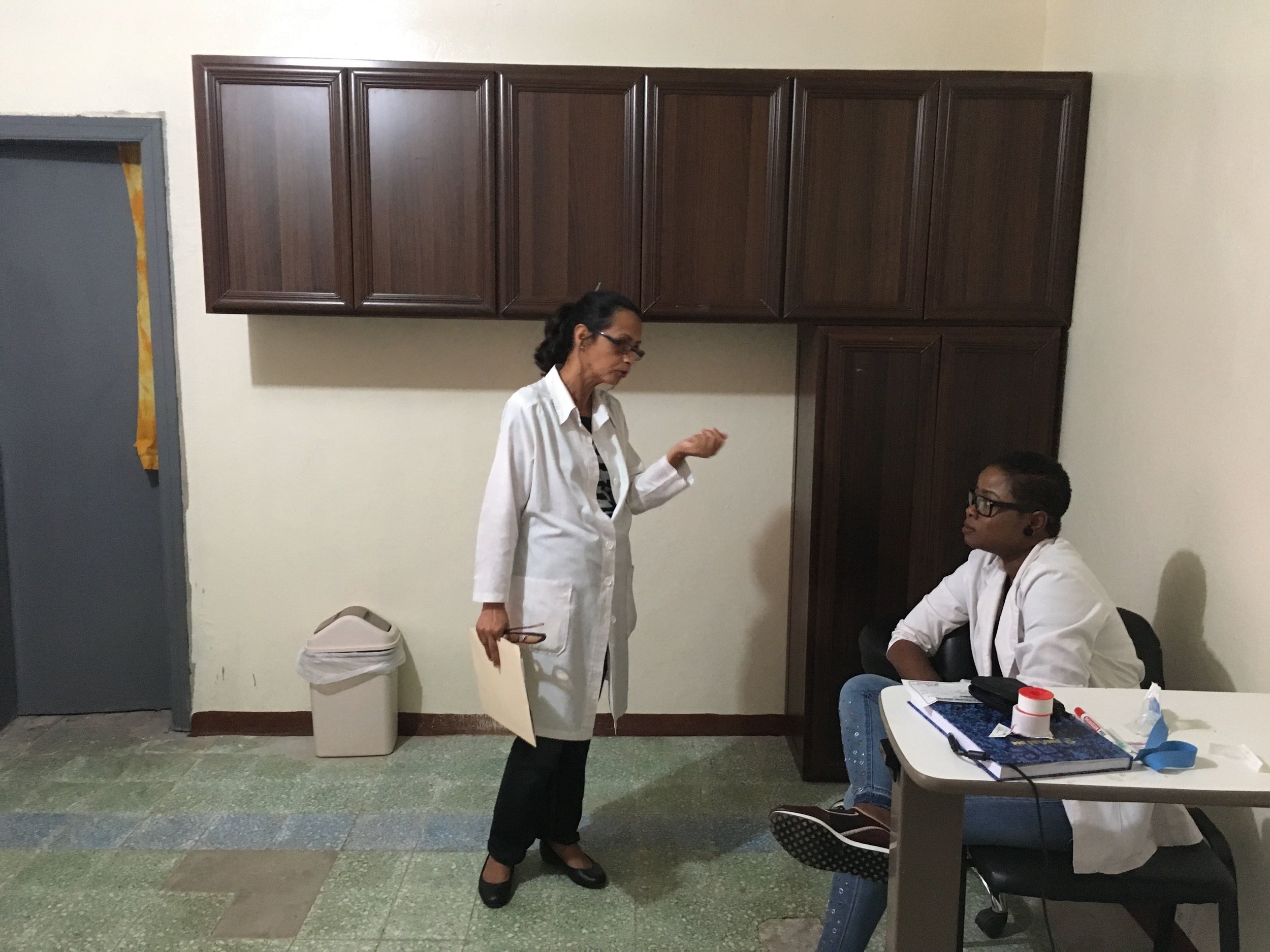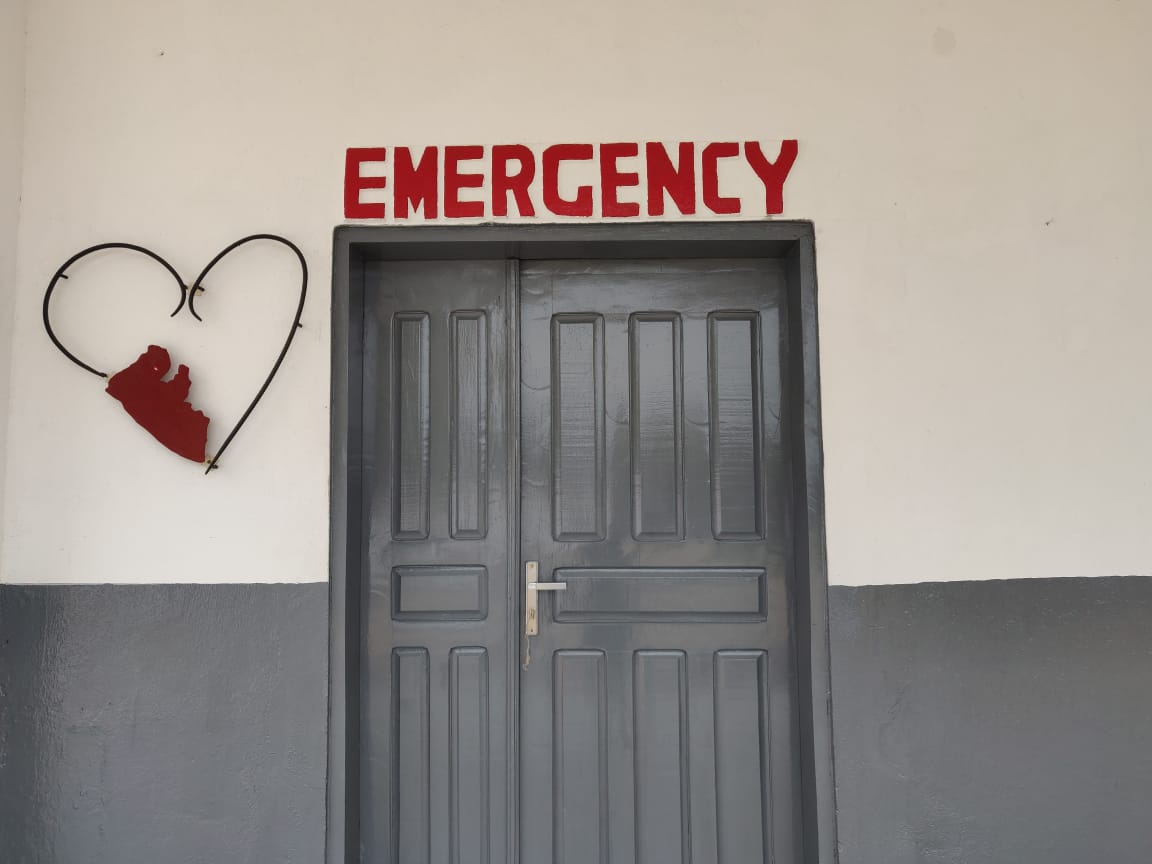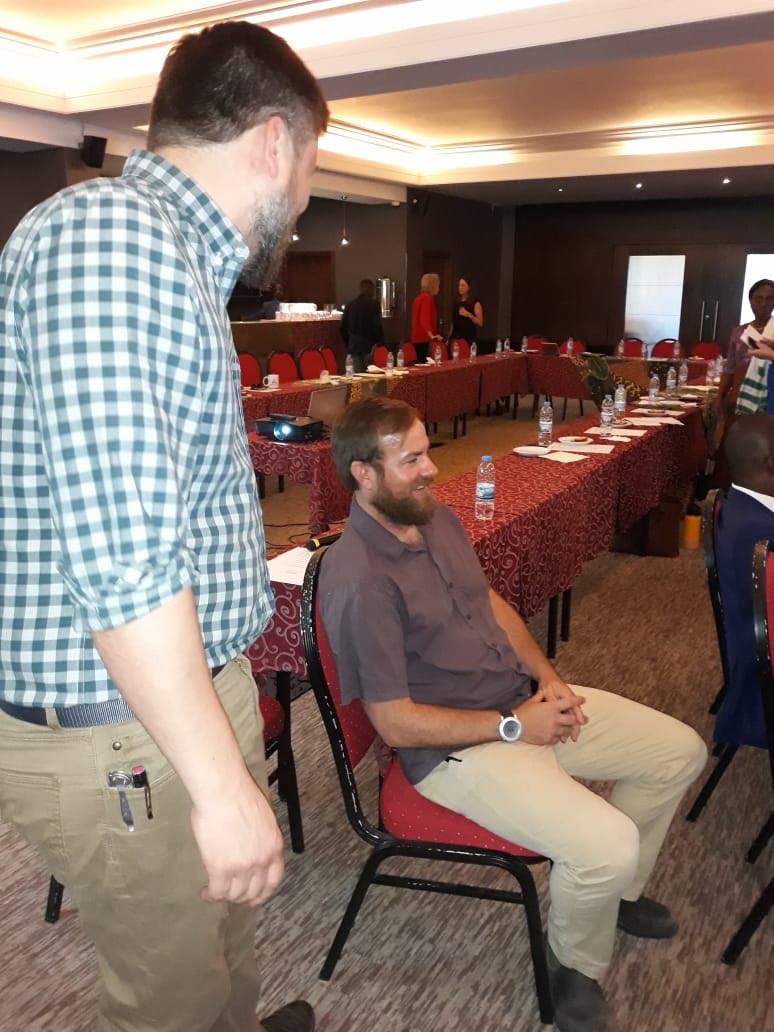Mike’s Liberia Journal
Summer 2019 #2
August, 2019 - Monrovia, Liberia
Working at the clinic has been fantastic. Since the last journal, we’ve spent every day there. So…what’s a day the clinic like?
We are open from 8am to 5pm Monday through Friday (weekends for emergencies only). The staff arrive at 7am and the first patients arrive just before 8am. After triage and registration, they are either in the urgent care bays (for emergencies) or in one of the two doctor’s outpatient clinic rooms.
As I mentioned in the last journal, we are currently functioning as an outpatient clinic with specialty care and services. We have one of the only internists with sub-specialty training in the country (Dr. Mercedes) and have respiratory care staff and equipment. We also have the only laboratory with blood gas and metabolic panel capabilities in the country. Most of the patients we are currently seeing are patients with chronic illnesses referred from (or unsuccessfully treated by) other centers; these patients come for Dr. Mercedes. Our next group are patients with respiratory ailments that come due to our reputation for respiratory care even prior to opening this facility (often these patients also need Dr. Mercedes). Finally, we have folks being treated at other centers that are sent here for laboratory services.
For good and for bad, we have opened in the heart of rainy season. Business dies throughout the country during the rain. People do not go to work, they do not go out. Some businesses genuinely close their doors for 4-6 months of the year; others just try to make more during the dry season to accommodate. That is combined this year with the economic crisis here I mentioned in the last journal. So, even the people that conduct business in the rain are likely struggling financially. The good news is that this allows us to truly have a soft open; not only are we opening with a skeleton crew, we do not have to worry about being overwhelmed while we are establishing our systems. We can evaluate every part of our operation one patient at a time. The bad news is…there’s not a lot of income. On a sunny day we will have twelve patients before noon; on a rainy one, we might be lucky to have four.
So, we need more patients. But, we have a facility that is providing a standard of care that is unparalleled here. I’m pretty pleased. People will come.
On the administrative side of the clinic, we are working on our electronic medical record system. This is another thing that is unheard of in Liberia. All facilities, including the national hospital, use paper charting. Handwritten, unscanned, unprinted, paper charting. Due to the heat, humidity, and storage conditions, most of these charts won’t last more than one visit (some not even that long, depending on the length of the hospital stay).
This is an example of something that we are fortunate to have a slow season in order to establish. For now, our “EMR” means literally scanning all paper documents from a patient’s chart into a computer at the end of each day and backing that computer up on a separate hard drive. This allows us to not only keep records for continuity of care but to also give copies of medical records to patients. We aim to have all medical records electronically stored by the time I leave Liberia. As we see more patients, we will need more administrative staff, but, that’s positive growth.
And this brings me to all of you who read this and support the work of Partner Liberia. Thank you! All of the expenses of OSTH and LRCI are funded through donations to Partner Liberia by you. Please consider contributing to support our ongoing work, we are not yet done. And, if you'd like to learn more about ways to get involved or the impact of your donations, please contact our Executive Director, Liam Carstens at liam@partnerliberia.org

